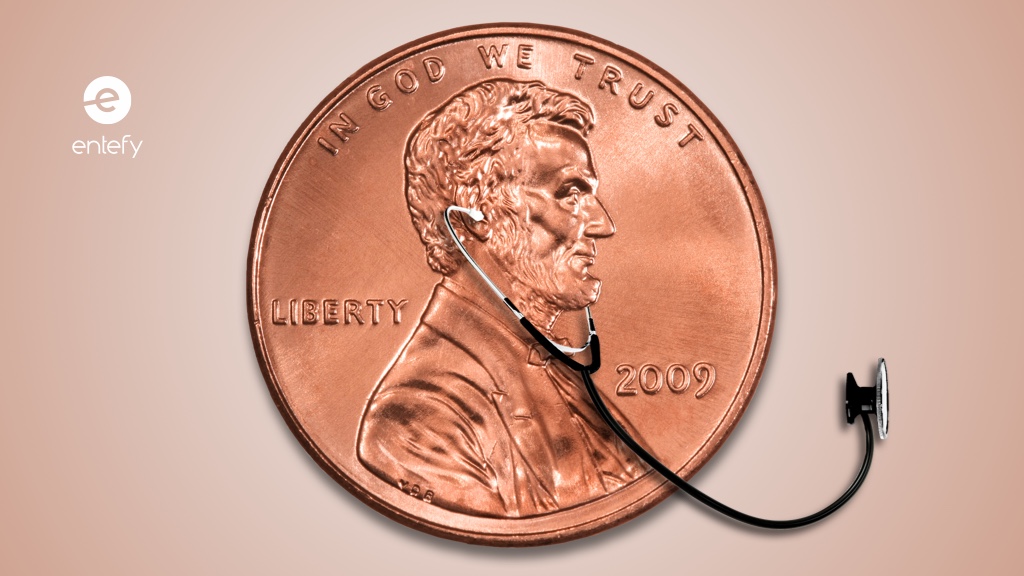A lot of what you read about artificial intelligence is speculation about what might happen years in the future. These articles are interesting to read, but they often ignore an important point: AI systems are already at work, already having an impact.
Take healthcare and medicine. The use of AI technologies in medical care is already demonstrating the technology’s potential to improve the quality of patient care. Around the globe, doctors and researchers are finding new ways to utilize AI as a revolutionary tool in the caregiver tool kit. From diagnosis, to personalized medical advice, to genetic and disease research, AI has emerged as a force in medical care.
In an environment where the cost of healthcare is a significant issue, not just in the U.S. but globally, advances in AI are opening new paths to cost savings as well. It’s a simple formula: Make doctors and nurses more productive with AI support, and costs decline when they can treat more patients in less time. You see the same dynamics with AI systems that support preventative care. Healthier people need less care, especially expensive acute care. The list goes on and on.
Here’s a rundown of 9 ways AI is being used to bring down costs and drive efficacy in healthcare today:
- Drug discovery. With the promise to do in a day what currently takes months, AI drug discovery systems are taking aim at the conventional wisdom in pharmaceuticals and biotech that “one new drug coming to market can take 1,000 people, 12-15 years, and up to $1.6 billion.”
- Easing the global doctor and nurse shortage. The World Health Organization (WHO) has estimated that there is a global shortfall of approximately 4.3 million doctors and nurses, with poorer countries disproportionally impacted.
- Decreasing caregiver time spent on low-value activities. A study by the American Medical Association (AMA) found that doctors spend 37% of their office time doing paperwork. AI’s strength in automating routine tasks like record keeping and compliance filings frees up doctors to focus more on patients.
- Enhanced medical diagnosis. To understand AI’s impact on diagnosis, look no further than this case in Japan. After weeks of struggling to determine the cause of a 60-year-old woman’s health issues, doctors entered her genetic data into an AI diagnostic system. In 10 minutes, the system analyzed thousands of gene mutations to correctly determine that she had a rare type of leukemia.
- Personalized medical advice. Though still in its infancy, AI systems can mine patient data to provide personalized medicine covering disease prediction, detection, and diagnosis as well as treatment optimization.
- Genetic and disease research. AI-driven research is taking place in areas like heart disease, diabetic complications, and brain trauma. One example is an AI system designed to analyze rare childhood immunological conditions, generating insights into how to treat and cure these issues.
- Preventative care. Hospital databases, electronic records, in-home monitors, fitness trackers, and implanted devices are all providing data that allows AI systems to identify at-risk patients. One AI system at Mount Sinai is designed to conquer heart disease through preventative care.
- Medication management. New systems using artificial intelligence to improve medication adherence combine AI with text messaging and other messaging protocols to prompt patients to stick to their medication plans. Another system used at Vanderbilt University Medical Center predicts which patients may need specific drugs in the future.
- Data mining medical records. The prospect of mining electronic health records can lead to insight in a range of health areas, everything from improved medication labeling to personalized medicine.
The combined impact of all of these individual AI advances can be expressed in dollars saved: lower compliance costs, cheaper medications, less demand for emergency services, and so on. The foundation for long-sought-after affordable healthcare may be AI technologies.
Check out Entefy’s in-depth look at AI in healthcare, “Patients are about to see a new doctor: artificial intelligence.”
